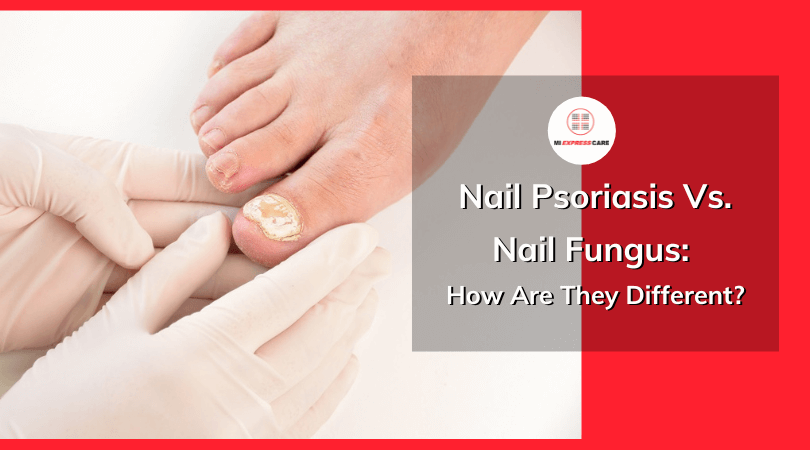


Psoriasis is an autoimmune disease that results in skin plaques and lesions. When symptoms appear on the toes and fingers, they can look like nail fungus. Nails fungus is a type of infection that is commonly contracted in wet environments such as pool decks and locker rooms but can also come from a variety of other places. In contrast, nail psoriasis can occur due to the same set of reasons that cause skin psoriasis. This article will go over the differences between nail psoriasis and fungus symptoms.
While the symptoms of these disorders are often similar, there are some major differences.
Apart from the above symptoms, the key distinction is that fungal infections are contagious, but psoriasis is not. To stop the spread, it's critical to be able to distinguish between the conditions. Therefore, it’s best to seek medical help as soon as symptoms of either of these diseases appear.
Also read: Ringworm Vs. Eczema: What Is the Difference?
Fungi are microscopic organisms that thrive in damp, warm settings. Showers and swimming pools are two of their favorite locations to hide. Any gap between your nail and the nail bed is an invitation for fungus to invade. They can even get in through small cuts in your skin. With age, you're more likely to develop nail fungus. Men are more likely than women to get nail fungus, especially if they have a family history of fungal diseases. Additionally, according to the National Psoriasis Foundation, about 50% of people with psoriasis and over 80% of people with psoriatic arthritis have nail-related medical issues. You're also more likely to get nail fungus if you
People with circulatory issues or diabetes are also more vulnerable. Any injury to the nail bed can increase your risk of developing nail fungus. With nail psoriasis, it's unclear why some people with psoriasis have problems with their nails while others don’t.
Since the causes of nail psoriasis and nail fungus differ, the treatments for both are also different. Antifungals, either topically or orally, are used to treat nail fungus because it is an infection. Since psoriasis is an inflammatory condition, treatment involves assessing the triggers and reducing inflammation. You will may also be prescribed a steroid.
See a doctor if you notice discoloration, pitting, or cracking in your nails. If you have psoriasis or diabetes, this is extremely crucial because, as per research, there’s a good chance that you could be suffering from both conditions.
Are you suffering from nail psoriasis or nail fungus? Schedule an appointment with MI Express Care. Our doctors can develop a recovery plan to diagnose and treat nail psoriasis and nail fungus accurately.